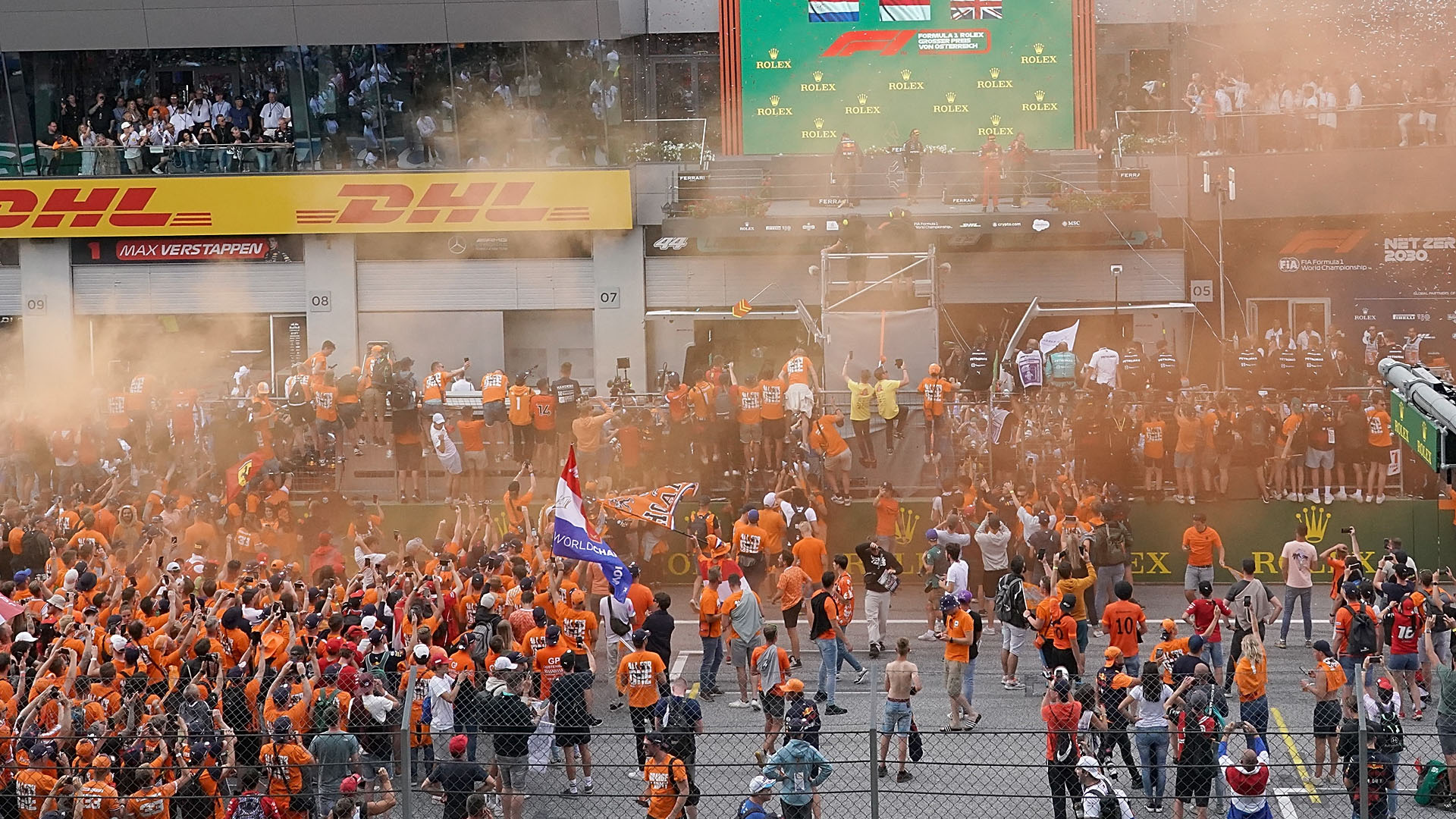

After fans reported many instances of racist, homophobic and sexual harassment at the 2022 Austrian Grand Prix, Formula 1 and the FIA are under pressure to respond. The problem isn’t new, but there are relatively simple things that can be done to address it and improve motorsports for spectators.
Unfortunately, it is true that motorsports are often hotspots for harassment. In particular, in Europe, they are extremely white, extremely male events with traditions like “grid girls” that make clear they’re playing to a straight audience through the lens of men’s perception. Models might have gone from F1’s pre-race ceremonies (although not entirely, particularly in Spielberg, Austria), but the brief introduction of the We Race As One reflective moment hasn’t changed attitudes much.
Drivers spoke about the events in Austria after the grand prix and what they said was essential. Lewis Hamilton saying We Race As One was just words and needs action, and Max Verstappen saying that no human should behave that way was good to call out for organizers and fans who harass people.
It’s realistic to expect F1 to make its events safe. They are closed, ticketed, and exclusive, with attendees paying hundreds to go. People can be turned away for any number of reasons, but none of them are for aggressive harassment. There are, though, a few simple steps that could immediately help.
Fan behavior agreements
Many events expect you to agree that you’ll comply with many guidelines. In our post-COVID world, we’re pretty used to it by now. But sending a clear message to fans, when they buy their ticket, that harassment of any kind won’t be tolerated and they will be removed from the event, sets the terms out very clearly.
It might seem like a weak commitment—anyone can agree without complying—but making it clear at the beginning that there will be consequences for harassers is a good step forward. Hopefully, it might mean people who want to harass people stay away or change their behaviors, but if not, they’ll be removed.

Simple, easy reporting
Reporting someone’s behavior at a grand prix isn’t a clear process. Do you speak to security? To a marshal? What authority do they have to deal with it?
Making it clear who fans should speak to if they’re being harassed is important. Whether that’s event staff and volunteers or security and police, it needs to be signposted around the track and to be consistent across events. There are so many standards for safety in motorsport and this should just be another one of them.
It might take a long time, but F1 needs online reporting for harassment after races. It might not be effective on race days, but it could mean that organizers know better how many, when, and where harassment occurs for future races.
Making a general service for reported bad behavior would set precedent and gather historical data from grands prix, which is another important step in addressing an endemic problem.

Consequences
If someone reports harassment, someone should be punished. Harassment has a victim and a perpetrator, and the right thing to do is to take it seriously and remove individuals who perpetrate against others.
If you can’t enjoy a race without making other people feel uncomfortable and unwelcome, then to quote Toto Wolff: fuck off.

Extend it beyond fans and beyond F1
F1 is a traveling circus and lots of people work in it. There’s a whistleblowing hotline that was set up a few years ago, but not for what you think it should be for: It’s for suspected technical infringements.
That needs to be improved. There has to be somewhere that people who work in F1 can report things like the racism detailed in the Hamilton Commission report or the massive number of sexual harassment incidents I’m acutely aware of. It’s unfortunately true that if you’re a woman in motorsport, you’re not likely to know any other women in motorsport who haven’t been sexually harassed at some point—it’s tragically persistent and consistent.
Racist or misogynist banter isn’t “someone else’s problem,” namely because when it happens to you it’s not “banter,” it’s harassment. People subject to harassment work in motorsports for the love of it, despite what they have to go through to do it; there shouldn’t be an expectation that they have to.
By getting a clearer, more honest picture of what happens at grand prix F1 and the FIA can make more detailed plans to address it. Until then, words are only words though.
Got a story tip? Mail it in on tips@thedrive.com